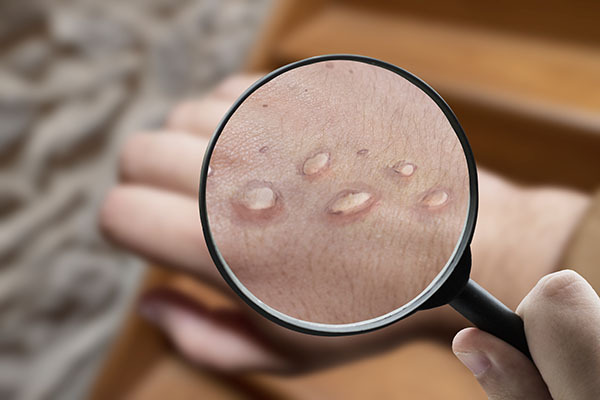
HICprevent
This award-winning blog supplements the articles in Hospital Infection Control & Prevention.
CDC: In Light of Severe Monkeypox Infections, Test Patients for HIV
October 7th, 2022

By Gary Evans, Medical Writer
A severe spectrum of monkeypox disease is appearing in patients with untreated HIV/AIDS, prompting the Centers for Disease Control and Prevention (CDC) to urge HIV testing for patients with monkeypox.
“During the current outbreak in the United States, 38% of people diagnosed with monkeypox were coinfected with HIV, and most reported cases of monkeypox with severe manifestations have been among people living with untreated HIV,” the CDC stated in a recent health advisory. “Because people with HIV-associated immunocompromise are at risk for severe manifestations of monkeypox, the HIV status of all sexually active adults and adolescents with suspected or confirmed monkeypox should be determined.”
Though severe cases of monkeypox can manifest in those immune compromised for other reasons, and even the immune competent, the CDC clearly is concerned about the intersection between the emerging pox virus and HIV/AIDS. Many people may not know their HIV status or have stopped effective available treatments to suppress the retrovirus.
Subsequent co-infection with monkeypox — particularly for those who have low CD4 counts — has produced devastating infections of disseminated monkeypox infection. A clinician who reported the first U.S. monkeypox death said that on autopsy, the virus was found in bone marrow and the brain, as it had disseminated widely throughout the body.
The presentation of disease was similar to that once seen in the hemorrhagic stage of smallpox, a rare but generally fatal variety of that vanquished virus, said Jemma Alarcón, MD, MPH, a CDC Epidemic Intelligence Service Officer in Los Angeles.
“This was the first confirmed monkeypox-related death in the United States, occurring in a 33-year-old man old with HIV/AIDS with a CD4 [count of] 35 cells/mm,” she said at a CDC clinical briefing. “[He] died from disseminated monkeypox, despite treatment with 28 consecutive days of oral tecovirimat.”
In sounding the alarm, the CDC described reports of monkeypox in untreated HIV-positive people with severe manifestations of disease that include:
- atypical or persistent rash with coalescing or necrotic lesions, or both, some which have required extensive surgical debridement or amputation of an affected extremity;
- lesions on a significant proportion of the total body surface area, which may be associated with edema and secondary bacterial or fungal infections among other complications;
- lesions in sensitive areas (including mucosal surfaces such as, oropharynx, urethra, rectum, vagina) resulting in severe pain that interferes with activities of daily living;
- bowel lesions that are exudative or cause significant tissue edema, leading to obstruction;
- severe lymphadenopathy that can be necrotizing or obstructing to airways.
For more on this story, see the next issue of Hospital Infection Control & Prevention.
Gary Evans, BA, MA, has written numerous articles on infectious disease threats to both patients and healthcare workers. These include stories on HIV, SARS, SARS-CoV-2, pandemic influenza, MERS, and Ebola. He has been honored for excellence in analytical reporting five times by the National Press Club in Washington, DC.
